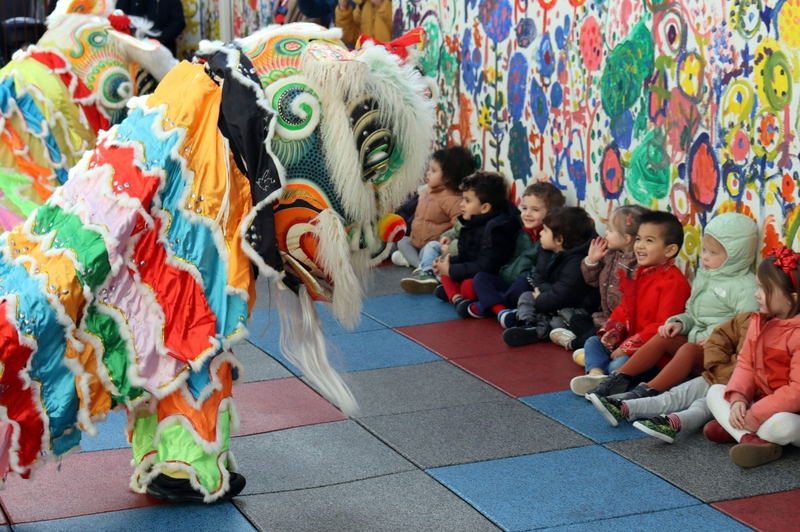The Lunar New Year celebrations that took place at school today, thanks to the Parents Association, brought back memories of the years I spent in China and Taiwan. Over there, it’s the biggest celebration of the year, and being a 老外 lǎowài (in China) or wāiguǒrén 外國人 (in Taiwan),* I had a tricky time getting my head around its importance. At school, we frequently refer to intercultural competencies, and the Lunar New Year is a prime example of one—it’s important for us not only to know about traditions in other cultures but also to understand what they mean for those who celebrate so we can enjoy the festivities with them. Thanksgiving is an example of a US holiday that holds great meaning for Americans but can make foreigners feel like outsiders for an hour or two.
In Taipei, the school where I worked positioned itself as an international school—in reality, a Western one— even though the board was composed exclusively of Tawainese members. Now, with hindsight, I realize that the school acted like a type of culture bulldozer whose symbolic trace could be found in its academic calendar: Christmas holidays lasted three whole weeks, while local schools didn’t have a single day off, two weeks break for Easter, and zero acknowledgment of local holidays, except for a few days break to celebrate the lunar new year.
I must admit that when it comes to preparing the academic calendar for The École, I still think about the calendar in Taipei and the disconnect it represented between the school and the world that surrounded and composed it (I also think about how easy it was to draft!) The École’s dual French-American identity, our attachment to the diversity that is the strength and the charm of New York, and the variety of families we serve—some who have children in public and private high schools in New York and elsewhere and would understandably like to spend the breaks together—all mean that crafting the academic calendar each year causes me to lose what little hair I have left and dread the scolding I’m inevitably going to receive once it is published!
Working on the calendar for 2024-2025, I continued to bear in mind parents’ requests for fewer days of school closure—there will be no in-service days during the school year again next year. I liaised with our partners at Léman to see if we could agree on some dates (it’s complicated, even impossible, for the spring break because it would mean a 12-week stretch before the end of the school year, and that’s way too long for our students and staff). I consulted the NYC public school calendar (no long stretches there, so we will have a few breaks in common, which is also important because we lose access to certain DOE services, such as the yellow buses, when public schools are closed). The Guild of Independent Schools also allowed me to compare practices in other schools regarding religious holidays. Finally, I had to draft the calendar to meet the expectations of the French inspector, who will have the final say on whether it is approved or not (the calendar for 2024-2025 is now awaiting validation, but it meets all of the inspector’s criteria, so its approval should be a mere formality).
Our calendar for 2024-2025 is, however, incomplete because it does not include the parent-teacher conference (PTC) dates yet. The feedback I’ve received from parents during my monthly P’tits Déjs and from some parent reps indicates that the PTC format needs to be overhauled, and I would like to spend some time considering the PTC feedback I receive from the whole community, particularly our teaching team, before reaching a definitive solution.
Whatever happens, I promise we’ll have a break for Thanksgiving! You can find the provisional calendar for 2024-2025 here.
*foreigner/outsider


